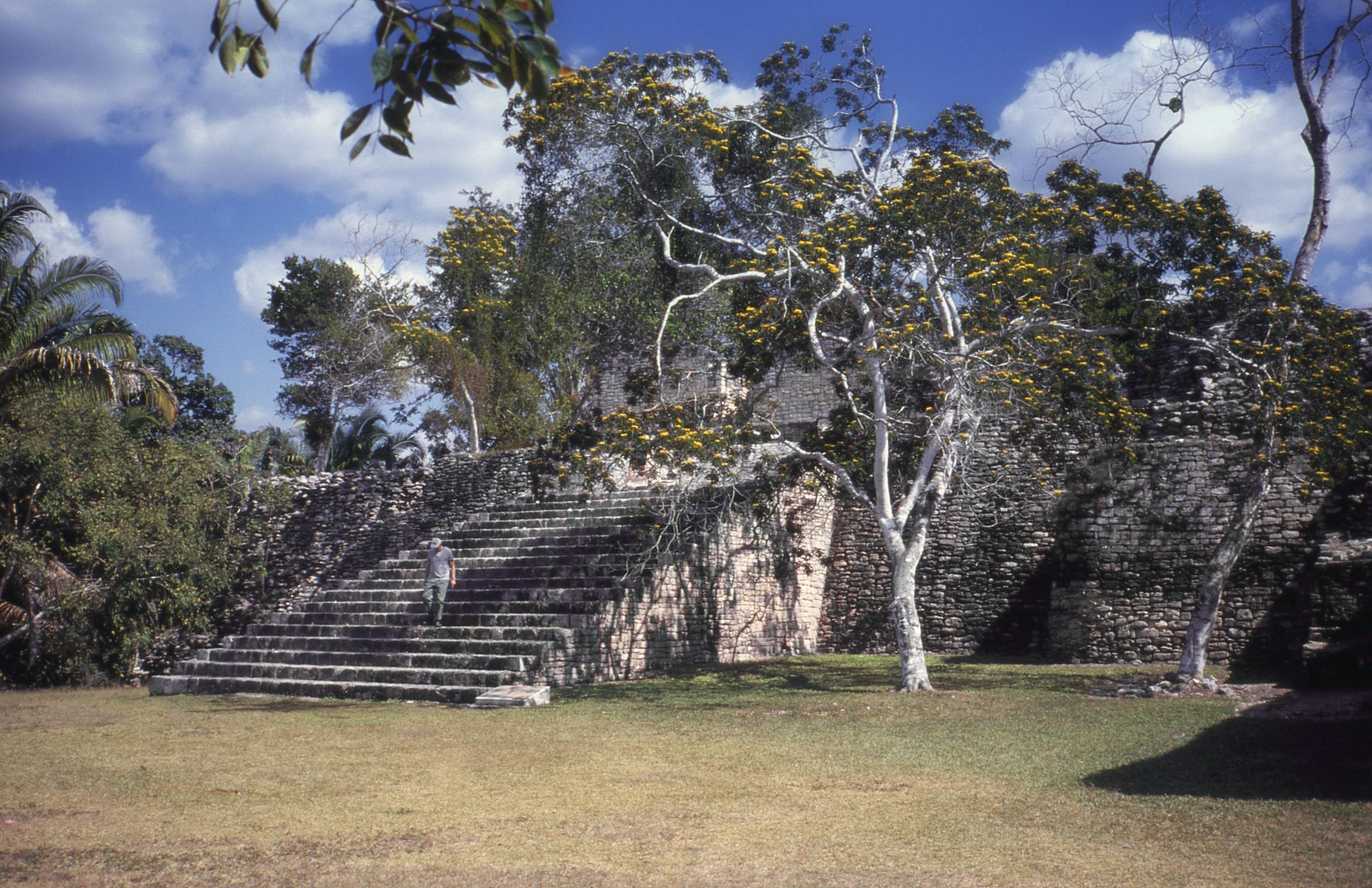The Stream, December 14, 2022: Scrutinizing Mexico’s Tourist Train, UN Raises Concerns about Cultural and Environmental Damage

Mayan ruins in the Yucatan peninsula. Photo courtesy Robert Linder via Unsplash.
YOUR GLOBAL RUNDOWN
- Proposed changes to Montana’s state constitution are placing environmental protections at risk.
- Lawmakers in Argentina voted to permanently protect the Mitre peninsula, an essential carbon sink at the country’s southern tip.
- In Mexico, the rushed development of a tourist train across the Yucatan peninsula threatens biodiverse rainforests and Indigenous communities, drawing UN attention.
- Cranberry farmers in Massachusetts and New Jersey are reckoning with their future amid unpredictable rainfall and a changing climate.
Indigenous peoples’ homes have been destroyed along the banks of Loktak Lake, the largest freshwater lake in South Asia, as the Indian government plans major development projects.
“The [Loktak Development Authority] sees Loktak as a gold mine. There is a lot of money in conservation, so the authorities are least bothered about its impact on the community.” — Salam Rajesh, journalist and conservationist.
Al Jazeera reports that the Indian government has planned “multimillion-dollar projects,” likely for the ecotourism industry, along Loktak Lake in the country’s northeast.
Loktak is a hotbed for biodiversity, a designated “wetland of international importance,” and the sacred home and key source of income for the local Meitei people. Over the past ten years, Manipur state had encouraged Meitei communities to open homestays along Loktak, which drew in tourists and provided the community with revenue. Meanwhile, they lived sustainably upon its shores.
But the government has gone back on this plan since these projects were announced — giving residents eviction notices, claiming without evidence that the homestays were deteriorating the lake, and providing no chance for negotiations. Many Meitei have since dismantled their homestays, and their livelihoods and “fundamental rights to life” are now at risk.
— Christian Thorsberg, Interim Stream Editor
Recent WaterNews from Circle of Blue
- The Year in Water, 2022 — “Sharpening the Shark’s Teeth,” a roundup of Circle of Blue’s reporting and investigations, from climate change to public health to ecosystems.
- Federal Water Tap, December 12, 2022 — Lawmakers Finalize Water Resources Development Bill.
The Lead
Tren Maya, a tourist train railway currently under construction by order of the Mexican government, has faced ample scrutiny in the past year from both environmental and human rights activists. The train is slated to travel over 900 miles through the Yucatan peninsula, the historic and present-day home of Maya peoples. The peninsula also comprises six UNESCO world heritage sites, which include protections for the country’s largest swath of tropical rainforests.
This week, after continued calls for the international community to intervene, United Nations experts released a statement raising concerns over the project’s impact. The Washington Post reports that, in rushing to complete the railway by December 2023, archeological digs are rapidly uncovering historic Mayan settlements, caves, riverways, sinkholes, artworks, and pyramids — most of which will be destroyed during construction.
This Week’s Top Water Stories, Told In Numbers
1.2 million
Acres of land and sea on the Mitre peninsula, Argentina’s southernmost region at the tip of South America, placed under permanent government protection. Mongabay reports that the peninsula is home to significant populations of peatlands, kelp forests, and endangered species, including the southern river otter.
7 to 10
Feet of water per acre required by cranberry farmers to grow the crop. Ambrook reports that growers in the U.S. northeast — areas stricken in recent years with drought and unpredictable rainfall — are struggling to cultivate the fruit. They are weighing future options with varying degrees of optimism, and attempting to adapt on the fly as the climate continues to change.
On the Radar
Montana is one of just six states with environmental protections enshrined in its state constitution. But a growing number of bills proposing changes to its “clean and healthful environment” clause have been submitted to the state legislature, now controlled by a Republican supermajority following November’s midterm election. This has left citizens — child and teen activists in particular — to worry over the future of these legal provisions and Montana’s environment when the state government convenes on January 2.
E&E News reports a strong youth environmental movement in the state, including several lawsuits targeting lawmakers for failing to address climate change on behalf of future generations in Montana and other Western states.
More Water News
Flint: Charges against former Michigan Gov. Rick Snyder, for willful neglect of duty during the Flint water crisis, are dismissed.
Keystone Pipeline: Reuters reports that an oil spill in northern Kansas, the largest in the U.S. in nearly ten years, will take weeks to clean as crews manage the breach.
Christian Thorsberg is an environmental writer from Chicago. He is passionate about climate and cultural phenomena that often appear slow or invisible, and he examines these themes in his journalism, poetry, and fiction.






Leave a Reply
Want to join the discussion?Feel free to contribute!